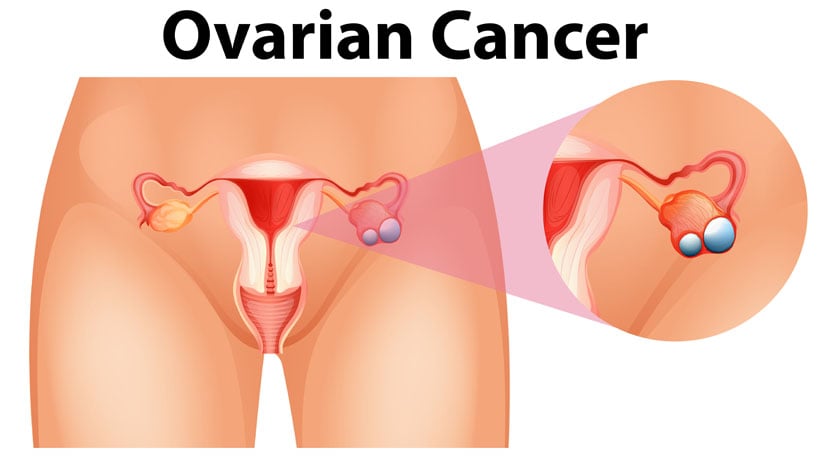According to an article published by the National Ovarian Cancer Coalition, it’s estimated that around 1 in 75 women will develop ovarian cancer in their life. 1 in 75 women. That’s roughly 22,280 new cases of ovarian cancer per year, deeming it one of the deadliest and most dangerous of the cancers. While (thankfully) chances for recovery, when treated early, are strong, only 20 percent of women catch it at a localized stage. Few of the warning signs are particular to ovarian cancer, and many can be disregarded simply as weird feelings: abnormal, but not abnormal enough to warrant a checkup. But, if you think you recognize any of the following symptoms, you should get screened immediately (even if it’s just an inkling).
Bloating
One of the sneakiest and yet most telltale signs of ovarian cancer is bloating. It might be misconstrued as a menstrual side effect, but if it is stemming from the ‘silent killer’, the bloating might be due to a tumor in the abdomen.
Abdominal pain
As with bloating, abdominal pain due to ovarian cancer might also be mistaken for those pesky time-of-the-month cramps. But, pelvic discomfort is common when a tumor is growing in the lower abdomen. Though easily ignored, abdominal pain is another telling sign of ovarian cancer.
Changes in appetite
Whether it is trouble getting full, or getting full too quickly, changes in appetite could be an indicatory symptom. If you notice any changes in your satiation levels, speak to a medical professional.
Increased urgency to urinate
A tumor growing in the pelvic area might apply pressure to the bladder, causing increased urges to urinate. Though easily mistaken for a UTI or simply a symptom of drinking too much water, increased urges to pee might be a sign of ovarian cancer.
Back pain
Another sneaky sign of the ‘silent killer’ is back pain. While back pain is not unique to ovarian cancer, the key is to detect pain that is new, not directly caused by any physical activity and unresponsive to other treatment.
Changes in menstruation
Often, women who have caught ovarian cancer after menopause experience period-like spotting. If you experience irregular bleeding or changes in your regular cycle, take notice.
Pain during sex
A tumor growing in the ovaries might cause discomfort, or even pain, during intimacy. If this is abnormal to you, it is advised that you get checked right away.
Indigestion
Often, women who experience the bloating and bleeding symptoms of ovarian cancer also experience some abnormal indigestion, like irregular gastro-intestinal issues and heartburn. With a condition as silent and relentless as ovarian cancer, it’s better to play it safe and get screened should any of these sneaky symptoms arise.
Sources:
https://www.cancer.org/cancer/ovarian-cancer/detection-diagnosis-staging/signs-and-symptoms.html
http://ovarian.org/about-ovarian-cancer/what-is-ovarian-cancer
http://www.health.com/ovarian-cancer/early-signs-ovarian-cancer#05-cramps-ovarian-cancer
https://www.cancercenter.com/ovarian-cancer/symptoms/



